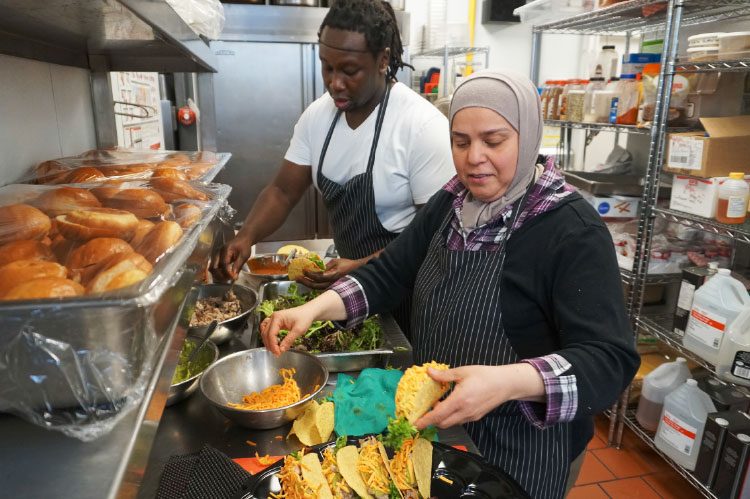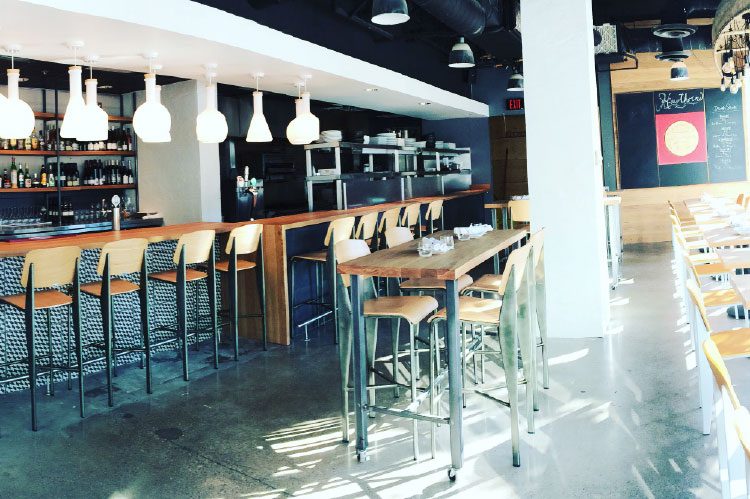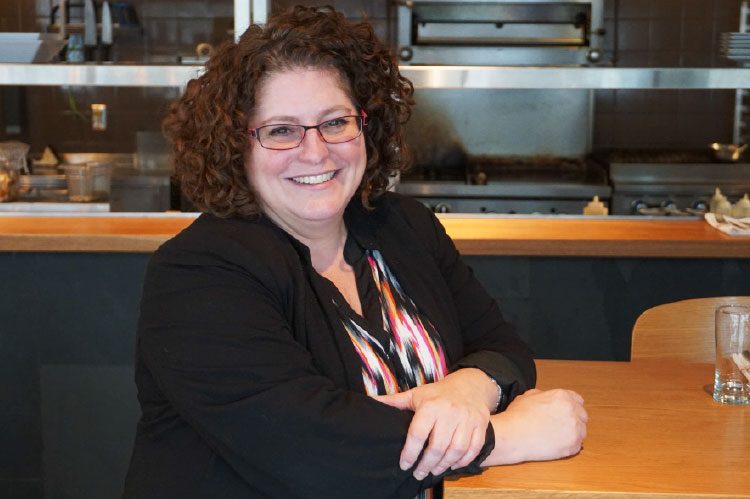Two Causes, One Social Enterprise – Hawthorne Food & Drink
Hawthorne Food & Drink is giving the underprivileged an opportunity to find gainful employment and give back to the community.
When SARS hit in 2003, it had a catastrophic effect on Toronto’s hospitality workforce. Thousands of people were laid off, and hotel occupancy rates dropped from 80 per cent all the way to 20 per cent.
In order to circumvent the gap in the workforce, hospitality workers and six of the major downtown hotel chains got together to create an organization necessary to deal with the workforce issues. This organization would come to be known as the Hospitality Workers Training Centre (HWTC).
Ten years later, the HWTC would come up with the revolutionary concept for Hawthorne Food & Drink, for which it won the United Way’s Social Enterprise Case Competition.
“The concept of Hawthorne was to use the operations of the restaurant to provide free training for in-demand jobs that would support people who experience unemployment. [The training would help them] to move into those jobs,” says HWTC’s executive director, Mandie Abrams.
All of the people who apply for and are accepted into this program are unemployed and do not have the necessary skills to find a job or gain training by themselves. These trainees have not had the access to education or opportunities that some more experienced people have had.
“We work with individuals who might be experiencing disability, new immigrants, people who have not graduated from high school, people who are experiencing illiteracy [and so on],” says Abrams.
The model Hawthorne uses is to provide short-applied vocational training and the assistance of employer support, which involves taking on trainees for short, unpaid placements. Participants in the program are able to gain workplace experience, as well as coaching and mentoring from industry professionals, with help finding work upon completion. In 2017, 70 per cent of program participants went on to find employment.
“We are able to provide them with an applied way to build the skills they need to get good jobs in a growing industry,” says Abrams.
One of Abrams’s favourite success stories of this program is a woman named Jae, who was a participant in the culinary pre-apprenticeship program, where the students learn to work in the kitchen.
Jae lived in a shelter in the east end of Toronto, as she had to move from a very dangerous situation. She had been through other training and employment programs, but nothing seemed to stick.
When she got into Hawthorne, Jae was not an easy trainee, but she worked hard, and they worked hard with her. After Jae completed the program, she went on a placement with a large caterer, who wound up offering her a job that she in turn rejected.
Instead, Jae got a job managing the same kitchen at the shelter for which she used to be a client. Abrams explains: “She says that, for her, she’s got a job, she’s got an office, she’s got benefits — and all that is great. But more so, she knows that she is giving back to everybody who walks through that door. She can nurture them, she can give them the basics of a good, warm meal, and those, to her, provide as much satisfaction as the office, the benefits and the salary.”
Stories like this — and this is only one of many more — show the impact of how helping people move into employment can not only improve their lives, but also enable them to give back to their own communities.
“If we can use food to nurture beyond the nutritional value, to nurture careers, to nurture lives, to nurture an industry, that’s an amazing opportunity” — Mandie Abrams
A recent United Way report states that a significant portion of the population is unable to improve their lives, because they do not have the social capital and assets needed to advance into employment.
“It is our business imperative to recognize who the workforce is going to be and to work with agencies such as ours to get the best possible preparation and access to them,” Abrams says.
Hawthorne is demand-driven, meaning it recognizes the needs the industry currently has, and then trains people as quickly as possible in order to fill those jobs. This allows Hawthorne to help two causes: one is assisting those who are struggling or have no other means of gaining valuable employment actually gain said employment, and the other is recognizing the burgeoning field of hospitality workers and creating a pipeline in order to fill those jobs.
“The workforce is going to grow, and we need to support our most vulnerable jobs to be able to participate in it,” says Abrams.
While Hawthorne is a social enterprise that is part of the HWTC, it is also a full-service, 40-seat restaurant that does breakfast, lunch and dinner, as well as catering and events. The majority of its products are seasonal, sustainable and locally sourced — straight from farm to plate — as Hawthorne believes in supporting the community.
Most of the staff at Hawthorne are instructors, providing training from the front of the house all the way to the kitchen. Executive chef and instructor Donald Williams relishes the opportunity to educate chefs, saying, “to see that they graduate, get a job and continue to strive to become a better person and a stronger person in their career [brings me joy].”
He continues: “Each day, they learn something new and something different, and they just want to learn more and more and more. That, to me, is just priceless.”
At the centre of this important social enterprise is one of nature’s greatest gifts to humanity — food. Food here is used to train people, to build skills and confidence, to support the environment and the community, allowing all of these aspects to come together harmoniously.
Williams says: “It doesn’t matter what creed, gender or race you’re from; food is food to all of us. It may have different names or be cooked in a different way, but food is food, and it is vital to society and the people.”
Abrams sums it up best: “If we can use food to nurture beyond the nutritional value, to nurture careers, to nurture lives, to nurture an industry, that’s an amazing opportunity.” And with Hawthorne Food & Drink, the HWTC is making the most of that opportunity.





















































































No Comment